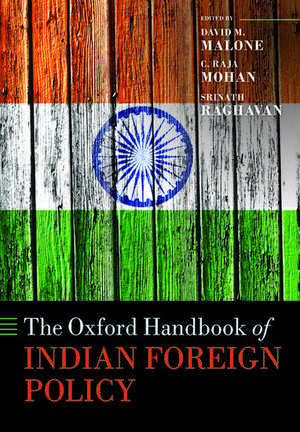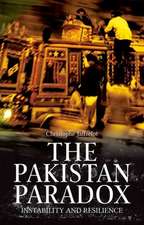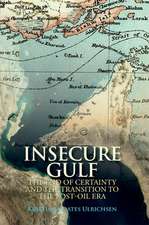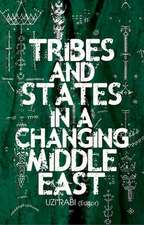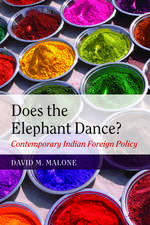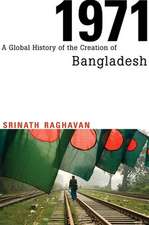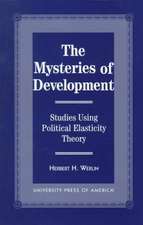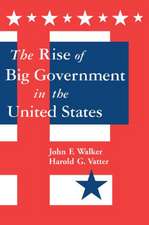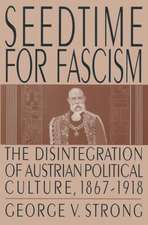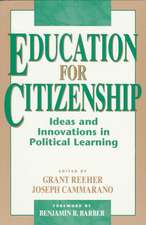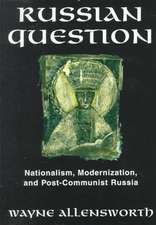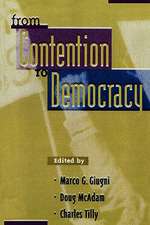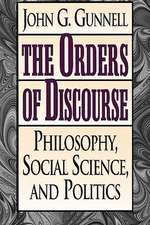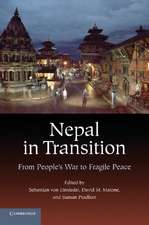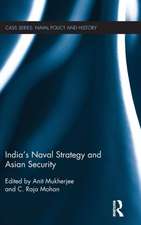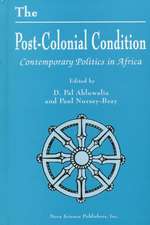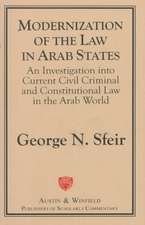The Oxford Handbook of Indian Foreign Policy: Oxford Handbooks
Editat de David M. Malone, C. Raja Mohan, Srinath Raghavanen Limba Engleză Paperback – 27 iul 2017
| Toate formatele și edițiile | Preț | Express |
|---|---|---|
| Paperback (1) | 311.36 lei 32-37 zile | |
| OUP OXFORD – 27 iul 2017 | 311.36 lei 32-37 zile | |
| Hardback (1) | 907.83 lei 32-37 zile | |
| OUP OXFORD – 22 iul 2015 | 907.83 lei 32-37 zile |
Din seria Oxford Handbooks
-
 Preț: 236.89 lei
Preț: 236.89 lei - 15%
 Preț: 358.80 lei
Preț: 358.80 lei - 17%
 Preț: 912.51 lei
Preț: 912.51 lei - 12%
 Preț: 307.94 lei
Preț: 307.94 lei - 25%
 Preț: 829.05 lei
Preț: 829.05 lei - 14%
 Preț: 987.01 lei
Preț: 987.01 lei - 26%
 Preț: 1376.97 lei
Preț: 1376.97 lei - 29%
 Preț: 929.22 lei
Preț: 929.22 lei -
 Preț: 303.54 lei
Preț: 303.54 lei - 26%
 Preț: 343.85 lei
Preț: 343.85 lei - 14%
 Preț: 278.15 lei
Preț: 278.15 lei - 29%
 Preț: 930.94 lei
Preț: 930.94 lei - 30%
 Preț: 1065.79 lei
Preț: 1065.79 lei - 15%
 Preț: 357.85 lei
Preț: 357.85 lei -
 Preț: 263.45 lei
Preț: 263.45 lei - 23%
 Preț: 839.79 lei
Preț: 839.79 lei - 16%
 Preț: 264.39 lei
Preț: 264.39 lei - 33%
 Preț: 737.68 lei
Preț: 737.68 lei - 33%
 Preț: 725.45 lei
Preț: 725.45 lei - 26%
 Preț: 342.76 lei
Preț: 342.76 lei - 25%
 Preț: 366.95 lei
Preț: 366.95 lei - 13%
 Preț: 304.72 lei
Preț: 304.72 lei - 16%
 Preț: 263.35 lei
Preț: 263.35 lei - 12%
 Preț: 267.23 lei
Preț: 267.23 lei - 33%
 Preț: 815.51 lei
Preț: 815.51 lei - 13%
 Preț: 346.76 lei
Preț: 346.76 lei - 22%
 Preț: 1095.69 lei
Preț: 1095.69 lei - 29%
 Preț: 931.18 lei
Preț: 931.18 lei - 29%
 Preț: 942.77 lei
Preț: 942.77 lei - 24%
 Preț: 1071.82 lei
Preț: 1071.82 lei - 23%
 Preț: 1052.07 lei
Preț: 1052.07 lei - 21%
 Preț: 863.03 lei
Preț: 863.03 lei - 30%
 Preț: 815.25 lei
Preț: 815.25 lei - 29%
 Preț: 855.42 lei
Preț: 855.42 lei - 30%
 Preț: 842.04 lei
Preț: 842.04 lei - 11%
 Preț: 258.32 lei
Preț: 258.32 lei - 29%
 Preț: 859.51 lei
Preț: 859.51 lei - 29%
 Preț: 1083.61 lei
Preț: 1083.61 lei - 15%
 Preț: 273.41 lei
Preț: 273.41 lei - 30%
 Preț: 818.12 lei
Preț: 818.12 lei - 11%
 Preț: 365.23 lei
Preț: 365.23 lei - 21%
 Preț: 359.87 lei
Preț: 359.87 lei - 13%
 Preț: 264.87 lei
Preț: 264.87 lei - 9%
 Preț: 307.08 lei
Preț: 307.08 lei - 28%
 Preț: 845.79 lei
Preț: 845.79 lei - 23%
 Preț: 855.11 lei
Preț: 855.11 lei - 21%
 Preț: 861.04 lei
Preț: 861.04 lei - 12%
 Preț: 250.34 lei
Preț: 250.34 lei
Preț: 311.36 lei
Preț vechi: 341.23 lei
-9% Nou
Puncte Express: 467
Preț estimativ în valută:
59.58€ • 62.38$ • 49.42£
59.58€ • 62.38$ • 49.42£
Carte tipărită la comandă
Livrare economică 31 martie-05 aprilie
Preluare comenzi: 021 569.72.76
Specificații
ISBN-13: 9780198803089
ISBN-10: 0198803087
Pagini: 772
Dimensiuni: 169 x 243 x 40 mm
Greutate: 1.32 kg
Editura: OUP OXFORD
Colecția OUP Oxford
Seria Oxford Handbooks
Locul publicării:Oxford, United Kingdom
ISBN-10: 0198803087
Pagini: 772
Dimensiuni: 169 x 243 x 40 mm
Greutate: 1.32 kg
Editura: OUP OXFORD
Colecția OUP Oxford
Seria Oxford Handbooks
Locul publicării:Oxford, United Kingdom
Recenzii
The Oxford Handbook of Indian Foreign Policy is an essential read for students at all levels and scholars who want to familiarise themselves with Indias strategic culture, the role of interest groups and other domestic factors on India's foreign policy, Indian Ocean, AfPak and emerging Asia. Scholars are encouraged to have this as a core textbook on Indias foreign policy and libraries must have copies of the book.
Has enormous value in providing context to why India behaves the way it does in its vicinity, and in the wider world. It provides insights into the objectives, at various stages, of elements of foreign policy. It tells us about the decision making processes within the country. It tells us of the shifting priorities of the state as well as the changing nature of diplomacy, and the specialized knowledge it now requires. It tells us about the contribution of some of Indias top leaders to thinking about Indias global engagement . . . And, in a fundamental way, the Handbook tells us the story of India and its journey from being on the margins of the global power structure yet with ambitions of shaping it to arriving at a stage where it can exercise influence.
This handbook of Indian foreign policy is a serious and substantial contribution to the debate on Indias foreign policy approach and engagements in an era that is witnessing significant changes.
Indian foreign policy has been a relatively under-researched subject, due, in some measure, to the lack of authentic source material. However, there is a growing interest in the subject and the OUP Handbook does a creditable job of providing a comprehensive survey, spread over 50 chapters, of examining the origins and development of independent Indias engagement with the world . . . the three editors have done a commendable job of providing a framework to what could easily have become an unwieldy collection.
The book nicely interweaves how national, regional, and global factors; roles of formal and informal actors; and objective (real-structural) and subjective (identity-related) factors shape Indias foreign policy affairs. The book is cohesive, clear, and concise; conveys the essence of its topic; and concludes with a discussion of strategies to support Indias growth as a rising or constrained power in global affairs.
an excellent survey . . . essential reading for those who want to understand India's foreign policy.
Has enormous value in providing context to why India behaves the way it does in its vicinity, and in the wider world. It provides insights into the objectives, at various stages, of elements of foreign policy. It tells us about the decision making processes within the country. It tells us of the shifting priorities of the state as well as the changing nature of diplomacy, and the specialized knowledge it now requires. It tells us about the contribution of some of Indias top leaders to thinking about Indias global engagement . . . And, in a fundamental way, the Handbook tells us the story of India and its journey from being on the margins of the global power structure yet with ambitions of shaping it to arriving at a stage where it can exercise influence.
This handbook of Indian foreign policy is a serious and substantial contribution to the debate on Indias foreign policy approach and engagements in an era that is witnessing significant changes.
Indian foreign policy has been a relatively under-researched subject, due, in some measure, to the lack of authentic source material. However, there is a growing interest in the subject and the OUP Handbook does a creditable job of providing a comprehensive survey, spread over 50 chapters, of examining the origins and development of independent Indias engagement with the world . . . the three editors have done a commendable job of providing a framework to what could easily have become an unwieldy collection.
The book nicely interweaves how national, regional, and global factors; roles of formal and informal actors; and objective (real-structural) and subjective (identity-related) factors shape Indias foreign policy affairs. The book is cohesive, clear, and concise; conveys the essence of its topic; and concludes with a discussion of strategies to support Indias growth as a rising or constrained power in global affairs.
an excellent survey . . . essential reading for those who want to understand India's foreign policy.
Notă biografică
David M. Malone joined the United Nations University on 1 March 2013 as its sixth Rector. In that role, he holds the rank of Under-Secretary-General of the United Nations. Prior to joining the United Nations University Dr. David Malone served (2008-2013) as President of Canada's International Development Research Centre, a funding agency that supports policy-relevant research in the developing world. C. Raja Mohan is Head of Strategic Studies and Distinguished Fellow at the Observer Research Foundation in New Delhi. Earlier he was a Professor of South Asian Studies at the Jawaharlal Nehru University, New Delhi and the Nanyang Technological University, Singapore. Dr. Mohan served as the Diplomatic Editor and the Washington Correspondent of The Hindu and the Strategic Affairs Editor of The Indian Express. He was a member of India's National Security Advisory Board. Srinath Raghavan is Senior Fellow at Centre for Policy Research, New Delhi, and Senior Research Fellow at the Kings India Institute. Dr. Raghavan's research interests are in contemporary history of India, international politics of South Asia, Indian military history, and India's foreign and defence policies since 1947.
